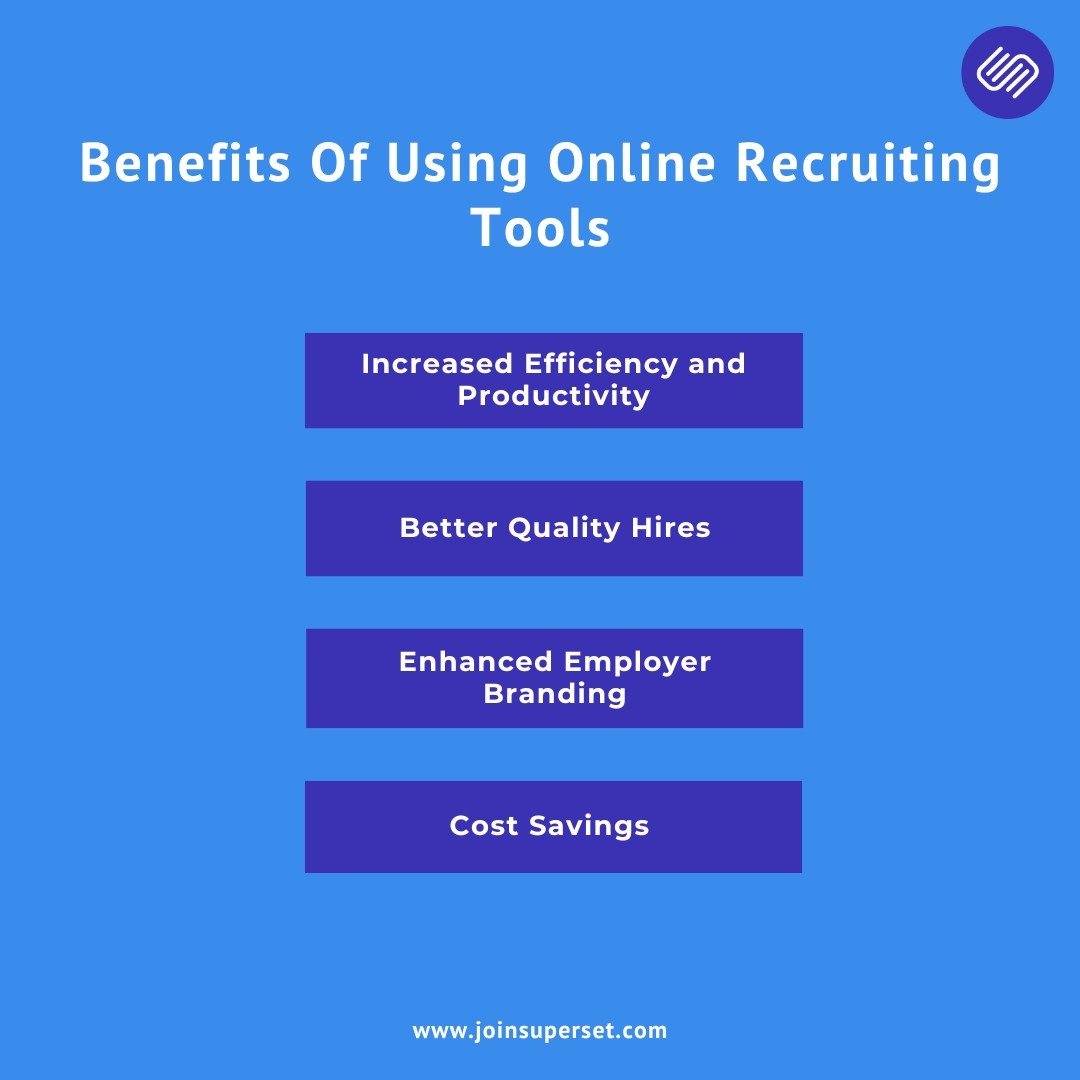The traditional methods of posting job ads and waiting for resumes to roll in rapidly become outdated in today’s fast-paced hiring environment. Companies need to leverage advanced online recruiting tools to attract the right talent that does more than just collect resumes. Modern online recruiting tools transform your entire candidate pipeline by offering automation, streamlining communication, and optimizing the candidate experience from start to finish. This blog will explore how these tools—such as online recruitment management software, and recruitment automation software—can dramatically improve your talent acquisition process, making it more efficient, data-driven, and effective.
1. The Evolution of the Candidate Pipeline
In the past, hiring was a reactive process. Companies would place job ads in newspapers or on job boards and hope for qualified candidates to apply. But this passive approach doesn’t always yield the best talent. As competition for top talent has increased, organizations are moving toward more proactive strategies emphasising relationship-building, engagement, and nurturing candidates throughout their journey. This evolution is where online recruiting tools shine. By automating many of the repetitive and manual tasks traditionally associated with recruiting, these tools free up HR professionals to focus on building relationships with potential hires and improving the overall hiring experience. They also ensure that no promising candidates fall through the cracks due to inefficient processes.
2. The Role of Online Recruiting Tools in Optimizing Your Candidate Pipeline
Let’s break down how different online recruiting tools play a pivotal role in enhancing your candidate pipeline.
Online Recruitment Management Software
An online recruitment management software is the backbone of modern recruiting efforts. It acts as a centralized hub where recruiters can post jobs, track applications, manage resumes, schedule interviews, and communicate with candidates—all from one platform. Here’s how it contributes to pipeline efficiency:
- Centralized Information: All candidate information is stored in one place, making it easy for recruiters and hiring managers to access, review, and share insights with relevant stakeholders.
- Automated Communication: The software can automatically send emails, updates, or interview requests to candidates, ensuring they remain engaged throughout the process. This automation prevents drop-off rates and enhances the candidate experience.
- Data-Driven Decisions: With integrated analytics, recruitment management software provides valuable insights into your pipeline, showing where candidates are coming from, where they drop off, and which stages need improvement.
Companies using such software reduce time-to-hire, improve collaboration among team members, and ultimately increase the quality of their hires.
Automated Hiring Systems
An automated hiring system takes automation to the next level by not only managing applications but also screening resumes, ranking candidates, and matching them to open positions. With the help of artificial intelligence (AI) and machine learning (ML), these systems can quickly sift through hundreds of applications, identifying those that best match the job criteria.
Here are the key benefits of integrating an automated hiring system:
- Faster Resume Screening: AI-powered algorithms can scan resumes in seconds, filtering out unqualified applicants and surfacing the best matches for the role.
- Bias Reduction: Automated systems help reduce unconscious bias in hiring by focusing purely on qualifications, skills, and experience rather than demographic information.
- Consistent Processes: Automation ensures that every candidate is evaluated based on the same criteria, offering a more standardized and fair hiring process.
By speeding up resume screening and initial candidate assessments, an automated hiring system ensures you never lose top talent to competitors simply because your process took too long.
Virtual Interview Platforms
In today’s remote and hybrid working environments, virtual interview platforms have become indispensable. These platforms not only facilitate remote interviews but also enhance your ability to assess candidates from anywhere in the world. Here’s how virtual interview platforms contribute to pipeline transformation:
- Wider Talent Pool: Virtual interviews remove geographic barriers, allowing companies to connect with top candidates from different locations without incurring travel costs.
- Faster Scheduling: These platforms often come with integrated scheduling tools that enable candidates to select interview times based on availability, speeding up the process.
- Interview Recording & Collaboration: Many virtual platforms allow interviews to be recorded, enabling other team members to review and provide input on candidates’ performance.
By adopting virtual interview platforms, companies can significantly reduce the time and cost associated with in-person interviews, while maintaining a consistent and fair interview process for all candidates.
Recruitment Automation Software
Recruitment automation software encompasses a range of tools designed to automate different aspects of the recruiting process. From resume screening and candidate outreach to interview scheduling and onboarding, recruitment automation can streamline every step of the candidate journey.
Here’s how recruitment automation software can transform your candidate pipeline:
- Automated Outreach & Engagement: Instead of manually reaching out to each candidate, automation tools can send personalized messages, keep candidates informed of their status, and prompt follow-up actions.
- Smart Job Matching: AI-powered job matching systems automatically match candidates with relevant openings based on their skills and qualifications, improving both speed and accuracy.
- Pipeline Nurturing: Recruitment automation software can continuously engage passive candidates with newsletters, job alerts, and updates about the company, keeping them warm until a relevant opportunity arises.
This technology ensures that every stage of the pipeline is optimized for speed, engagement, and efficiency, allowing recruiters to focus on more strategic tasks, such as interviewing and decision-making.
3. How Online Recruiting Tools Improve the Candidate Experience
Today’s job market is highly competitive, and candidates have more choices than ever. To stand out, companies must offer a seamless, transparent, and engaging recruitment process. Online recruiting tools play a critical role in enhancing the candidate experience in the following ways:
Transparent Communication
Candidates often cite poor communication as one of their biggest frustrations during the recruitment process. Online recruitment management software and automated hiring systems solve this problem by providing automatic updates to candidates about their application status. Whether it’s acknowledging receipt of a resume or notifying a candidate of their next interview step, these tools keep candidates informed, reducing frustration and uncertainty.
Streamlined Application Process
Lengthy and complicated application processes can deter qualified candidates from applying. Online recruiting tools simplify the application process by allowing candidates to easily upload their resumes, fill out necessary information, and apply to multiple positions with a few clicks. Some systems even allow applicants to auto-populate information from their LinkedIn profiles, further reducing friction.
Faster Decision-Making
When companies use automated hiring systems and virtual interview platforms, the time between application submission and the final decision is drastically reduced. Candidates no longer have to wait weeks to hear back, which improves their overall experience and perception of the company.
4. Why Companies Should Invest in Online Recruiting Tools
For HR managers, recruiters, and founders, investing in online recruiting tools offers a multitude of benefits beyond simply filling roles faster. Here are a few compelling reasons to consider:

1. Increased Efficiency and Productivity
Automation reduces the time spent on manual tasks like resume screening, scheduling, and follow-ups. This frees up recruiters to focus on high-value activities such as engaging with candidates and strategizing with hiring managers.
2. Better Quality Hires
With tools like recruitment automation software and automated hiring systems, you can focus more on matching the right talent to the right roles. These systems are designed to surface the best candidates, improving the quality of your hires over time.
3. Enhanced Employer Branding
Offering a smooth, efficient, and transparent recruiting experience reflects positively on your company’s brand. Candidates are more likely to share positive experiences, which can enhance your reputation as a desirable employer and attract more top talent.
4. Cost Savings
While there may be an initial investment in online recruiting tools, the long-term cost savings are significant. Faster time-to-hire, reduced reliance on external agencies, and lower turnover rates all contribute to cost efficiency.
5. The Future of Recruiting: Data-Driven and Candidate-Centric
As we look to the future, online recruiting will only continue to evolve. The integration of data analytics and AI will allow for even more personalized and predictive recruiting experiences. Companies that leverage data to understand where candidates are in the pipeline, what motivates them, and how to engage them will have a distinct advantage in the talent market. Additionally, the shift toward more candidate-centric processes will push companies to further enhance their recruitment efforts with tools that offer transparency, flexibility, and speed. This transformation is not just about using technology but about creating a holistic recruiting experience that puts the candidate at the centre.
Conclusion
The days of relying solely on job ads are long gone. Companies, HR managers, and recruiters must embrace online recruiting tools to transform their candidate pipeline into a streamlined, automated, and efficient process. From online recruitment management software and automated hiring systems to virtual interview platforms and recruitment automation software, these tools can significantly enhance the hiring process, leading to faster, better-quality hires and a more positive candidate experience. By investing in these technologies, companies can not only improve their current recruiting efforts but also position themselves as leaders in the future of talent acquisition.








